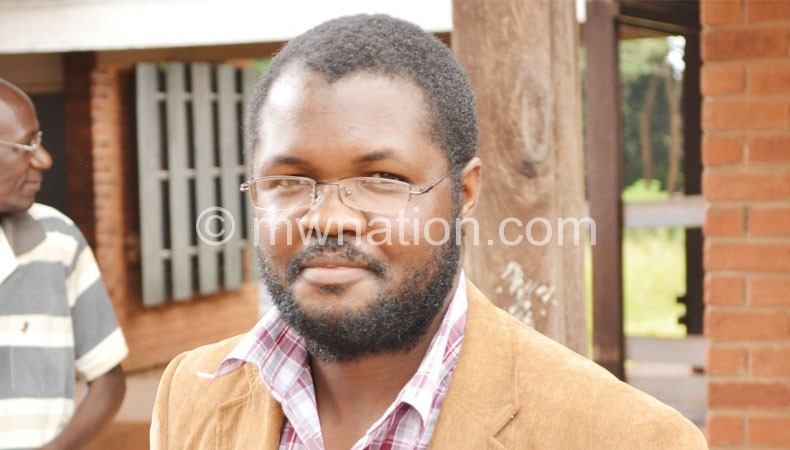Cashgate suspects cornered
- Pre-trial bargains impossible
- Guilty plea only option—Govt
Eight Cashgate suspects who are negotiating for pre-trial bargains on various charges they are facing in relation to the looting of billions of kwacha from public coffers cannot enjoy that luxury as the Judiciary is not ready to set up plea-bargaining rules to guide such deals, Weekend Nation can report.

The office of Chief Justice Anastasia Msosa disclosed this week it is not ready to establish the rules which were expected to guide the prosecuting authorities such as the Director of Public Prosecution (DPP) and Anti-Corruption Bureau (ACB) in deciding on the suspects’ proposed plea bargains.
This leaves the suspects with taking guilty pleas in court as an only option, Ministry of Justice’s spokesperson Apoche Itimu said yesterday.
“In the absence of the plea-bargaining rules, we cannot use or even consider using them; the only option available at the moment is a guilty plea which can then be used as a mitigation point in sentencing,” she said.
Although the country’s Criminal Procedures and Evidence Code makes provision for plea-bargains in Section 252A, the office of the Chief Justice is yet to set guidelines to regulate the actual bargaining.
But in a written response to a questionnaire, spokesperson for the Judiciary Mlenga Mvula said the Chief Justice’s office is not prepared for the lengthy process of establishing the rules, although “it is looking into the matter with utmost urgency”.
“There is need for a legal team to come together and start drafting the rules; this will also involve research to be conducted in other countries where such rules are in place, hence it is a long process.
“But [the office] is looking into the issue with utmost urgency …once the rules are in place, the Chief Justice may always advise the Ministry of Justice,” he said.
Anti-Corruption Bureau (ACB) deputy director Reyneck Matemba told Weekend Nation after he appeared before the Legal Affairs Committee of Parliament two weeks ago that the bureau had so far received eight bargaining requests from lawyers representing Cashgate suspects.
He declined to reveal the names of the suspects, saying that could jeopardise ongoing investigations.
But our Sister paper Nation on Sunday reported in October last year that several suspects, including main suspect Oswald Lutepo—who is charged with theft and money laundering amounting to K4.3 billion—were holding discussions with ACB and the office of the DPP.
The proposed deals, as reported by Nation on Sunday, bordered on the suspects becoming State witnesses, disclosing vital information to government and returning the alleged stolen money.
Commenting on the guidelines setback, lawyer Sunduzwayo Madise, who is a lecturer at the University of Malawi, but is currently a PhD student at the University of Warwick in United Kingdom where he is also a tutor, said plea-bargaining can still take place in the absence of rules.
He cited the recent case of the Republic versus Theresa Senzani where, he said, some sort of bargaining clearly took place behind the scenes.
Senzani, former principal secretary of Tourism Ministry was convicted of theft and money laundering charges in relation to Cashgate.
“What is lacking is the legal framework to regulate this bargaining. Without a legal framework, the State and a defendant can agree on a plea-bargain and the court may simply reject it,” he said.
Regarding sentiments from other sectors of society who argue that plea-bargaining is the only way government can recover all Cashgate-related property and quicken investigations and prosecution of the cases, Madise said these can be achieved without plea-bargaining rules.
“In law, when someone is accused of stealing money, the other side has two options; they can choose to charge the person under criminal law or chose to recover [the money] under civil law,” he said.
The Cashgate is Malawi’s biggest financial scandal in which billions of kwacha was systematically siphoned out through fraudulent payments for services that were not rendered to the government.
So far, four people have been convicted in Cashgate-related cases since the scandal came to light in September 2013 following the arrest of Victor Sithole, an accounts assistant in the Ministry of Environment, who was found with K120 million in cash.
The scandal was blown wide open a few days later when the then budget director in the Ministry of Finance, Paul Mphwiyo, was shot outside his residence in Lilongwe. n





